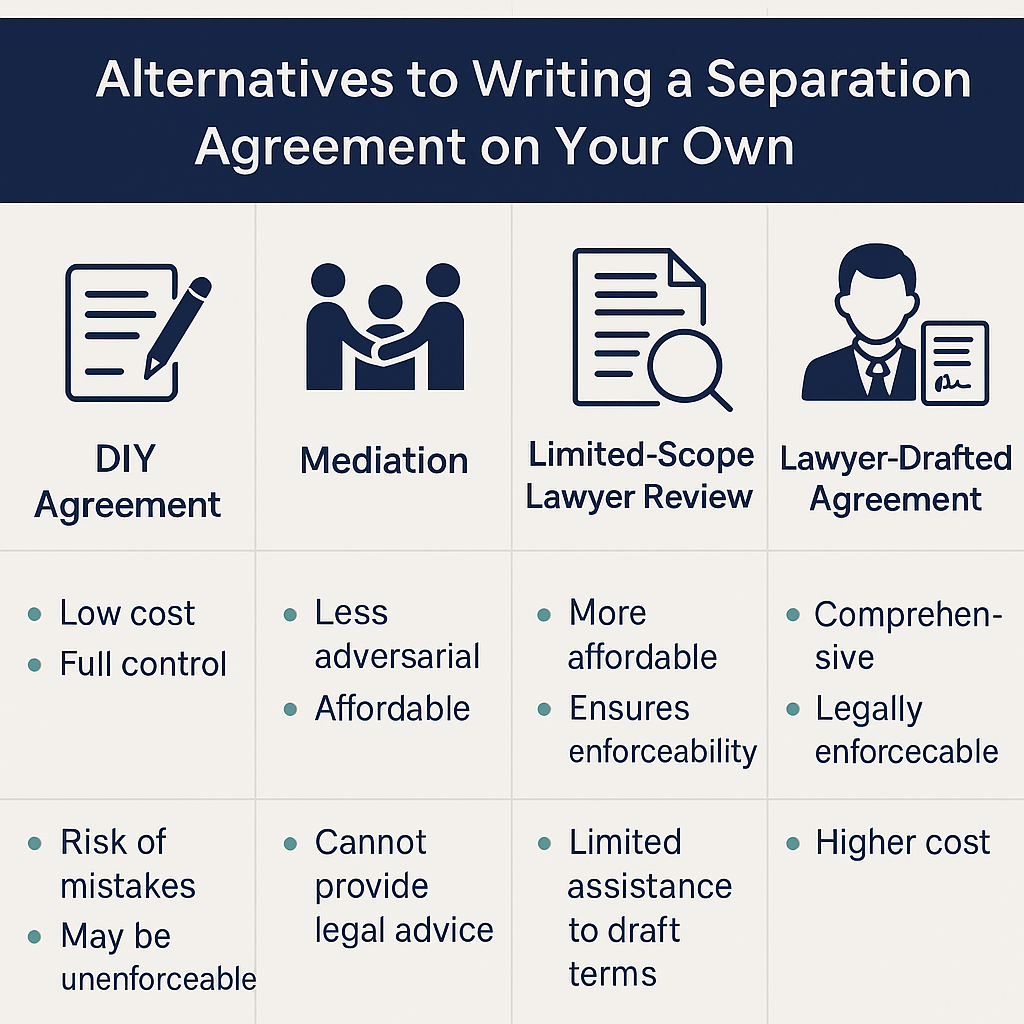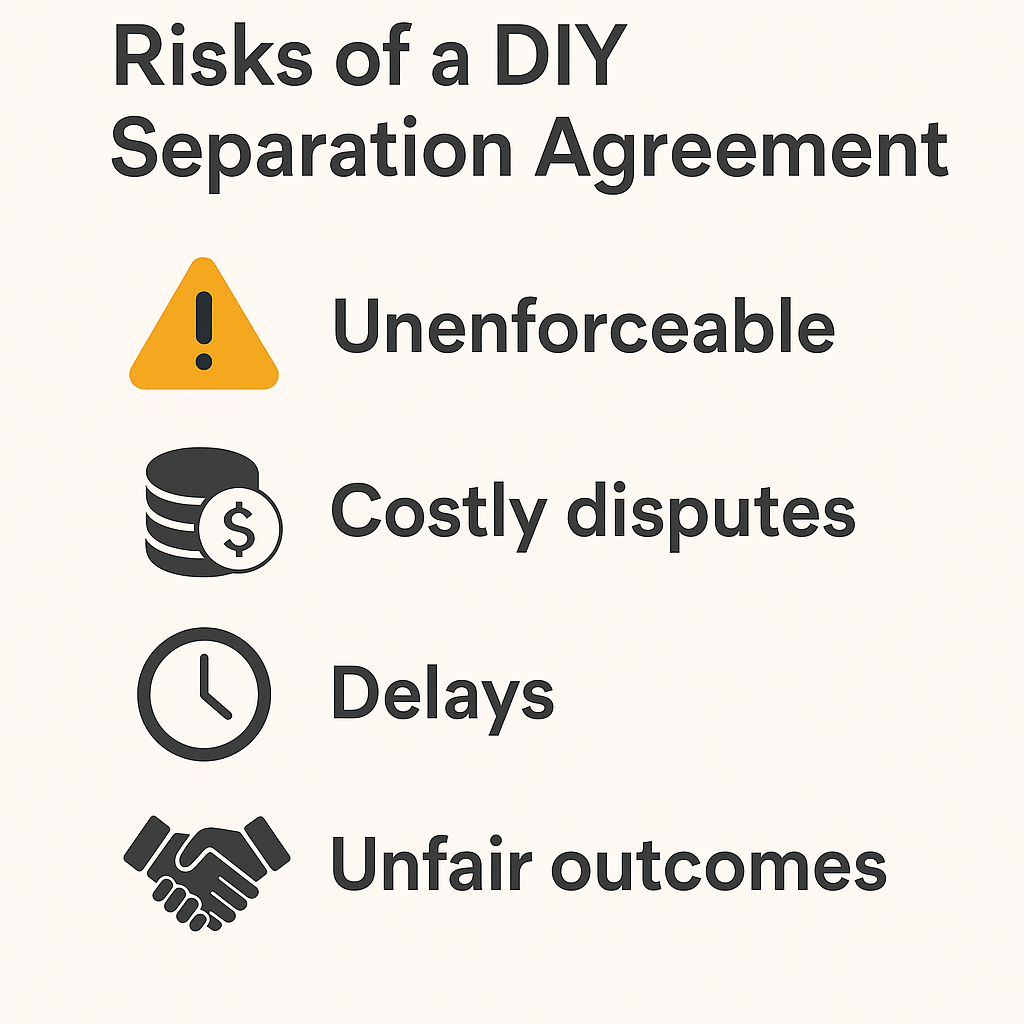What is the difference between separation and divorce?
Separation occurs when spouses cease cohabitation with the intention to live apart permanently. Divorce is the legal termination of marriage, which requires one year of separation (with limited exceptions). A separation agreement governs your rights during separation and often forms the basis for divorce proceedings. In
Canada, you must be separated for at least one year before applying for divorce, unless grounds of adultery or cruelty.
Do we both need lawyers for a separation agreement?
Independent legal advice is strongly recommended for both parties. This ensures each person understands their rights, the agreement’s implications, and that terms are fair. Independent legal advice also strengthens the agreement’s enforceability.
Can we modify a separation agreement later?
Yes, but modifications require mutual consent or a court order. Well-drafted agreements include review provisions and specify conditions under which modifications may occur (e.g., material changes in circumstances). Our lawyers draft flexible provisions that anticipate future needs.
Is a separation agreement legally binding?
Yes, when properly executed. A valid separation agreement is a legally binding contract enforceable in court. It must meet specific requirements including full financial disclosure, absence of duress or unconscionability, and compliance with Ontario family law.
How long does it take to complete a separation agreement?
Timelines vary based on complexity and cooperation between parties. Simple agreements may be completed in 2–4 weeks, while complex cases involving business valuations or contentious negotiations may require 2–6 months. We work efficiently to expedite the process while ensuring thoroughness.
What if my spouse refuses to provide financial disclosure?
Full disclosure is mandatory under Ontario family law. If your spouse refuses, we can seek court orders compelling disclosure, request third-party records, or advise on appropriate legal remedies to protect your interests.
Can a separation agreement address our home?
Yes. The agreement can specify whether one party will remain in the matrimonial home, buyout terms, sale procedures, responsibility for carrying costs, and equalization credit for home equity. Proper documentation is essential for enforceability.
What happens if we reconcile after signing?
Reconciliation does not automatically void a separation agreement, but cohabitation for more than 90 days may affect certain provisions. Well-drafted agreements address reconciliation scenarios and specify which terms survive or are suspended during reconciliation attempts.




